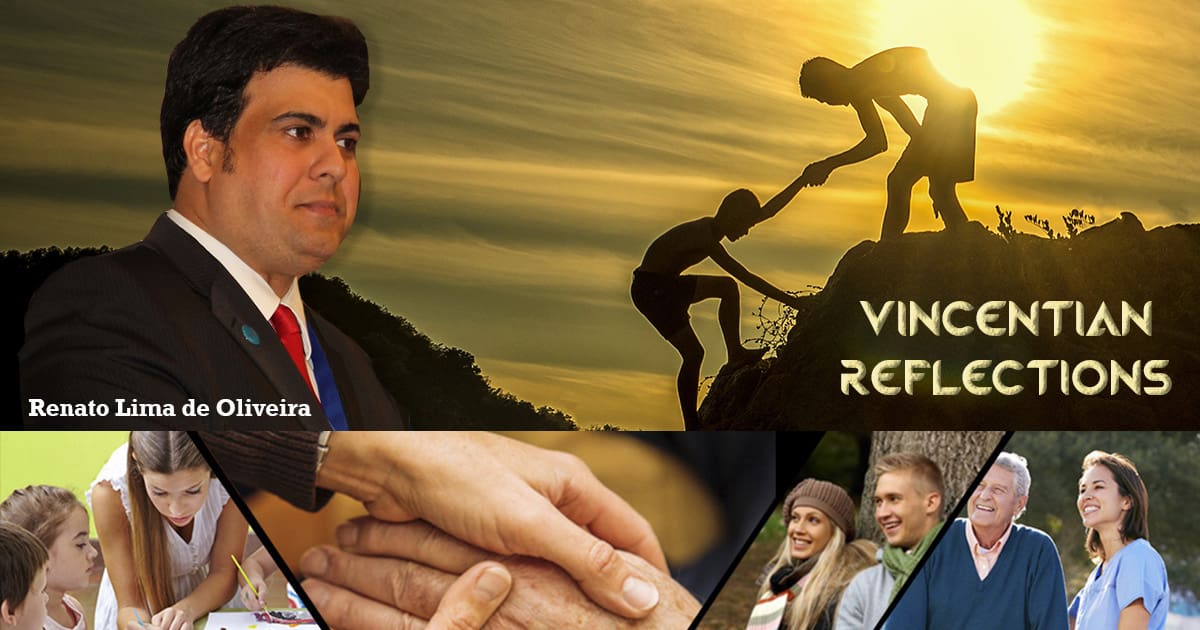Should our Assistance be Eternal and Only for Catholics?
Two questions, raised by Vincentians of my region who deserve reflection within the Society of St. Vincent de Paul, have recently reached my ears. The first question is whether the Conferences should only provide assistance to people who declare themselves Catholic. The second has to do with the duration of the Vincentian assistance, which for some could be even eternal, that is, uninterrupted. Let’s talk now about these two topics.
On the question of attending only to Catholics: the work of the Vincentians aims to serve people in need without taking into account their creed, social or ethnic origin, their state of health, sex, cultural particularities or political opinions, although the works of the Society of St. Vincent de Paul are carried out in harmony with the teaching and the Social Doctrine of the Catholic Church[1].
That is, we can not make any distinction, in the sense of selecting those people we will attend; nevertheless, our assistance is eminently Catholic and, therefore, the beneficiaries must accept our modus operandi and our charism. The visit is also a form of evangelization, which can not be restricted to mere material attention[2]. That is to say, a protestant, or a practitioner of another religion, who is assisted by the Vincentians must be aware of the practice of the Society of Saint Vincent de Paul, aligned with that of the Catholic Church.
However, we reserve the titles of “member” or “aspirant” of the SSVP only to Catholics: only people who profess the Catholic faith can be proclaimed members of the SSVP. Thus, the members of the SSVP must be practicing Catholics, although it is not obligatory for the assisted to be Catholics. On the other hand, having families of other religions in the assitance works of a Conference is a reason for redoubled joy, because it allows us to exercise our ministry without proselytizing and with renewed missionary ardor, as St. Vincent de Paul did.
As for the duration of the Vincentian assistance (six months, twelve months, two years or eternal assistance), our rules do not foresee any particular period. Of the various points that refer to the visit in the different National Rules, it is usually indicated that the home visits will be weekly, that they should be preceded by prayer, and that both material and spiritual matters of the assitants should be taken into account[3].
Good Vincentian practices recommend that the Conferences, each year — whenever possible — make a renewal of their assisted families, seeking to identify new people in situations of suffering and social exclusion. This is a fairly reasonable period for the Conference to be able to act efficiently and for those assisted to “walk with their own legs.” One year is also a deadline that prevents both parties (those assisted and vincentians) from accommodating themselves in the routine of assistance.
It is evident that a previously assisted family will always gravitate around the Conference, and it is not uncommon for it to be invited to certain events (Christmas fraternization, childhood day, community talks, etc.). Therefore, the completion of the assistance to a family does not completely remove it from the life of the Conference, but it gives the opportunity for other families, sometimes more in need, to receive the friendly and welcoming visit of the Vincentians, for medium of a well made distribution.
[1] Some National Rules have explicitly indicated this universal character of the aid, for example, the Rule of Brazil (2007 edition).
[2] This is indicated, for example, by Article 78 of the Rule in Brazil.
[3] Cf. Rule of Brazil, article 79.
Renato Lima de Oliveira
16th General President of the Society of Saint Vincent de Paul
Tags:







0 Comments